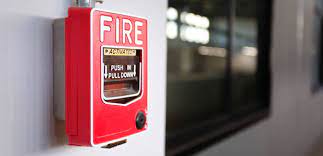Ensuring your home is equipped with properly installed fire alarm systems is crucial for your safety. This guide highlights key locations for installing smoke, heat, and carbon monoxide alarms to maximise their effectiveness.
Table of Contents
- Introduction
- Smoke Alarms
- Heat Alarms
- Carbon Monoxide Alarms
- Special Considerations
- Maintenance and Testing
- Conclusion
- About Route Electrical Ltd
Introduction
A well-placed fire alarm system can save lives by providing an early warning in case of fire. Understanding where to install these alarms is essential for effective fire safety.
Smoke Alarms
Living Rooms & Bedrooms:
Detects smoke from slow-burning fires; install in each bedroom and common areas.
Hallways & Landings:
Place on ceilings, ensuring coverage on each floor.
Installation Height:
Should be installed on the ceiling, centrally in the room, at least 300mm away from walls and light fixtures.
Heat Alarms
Kitchens:
Ideal location due to less sensitivity to cooking fumes, preventing false alarms.
Placement:
Install centrally on the ceiling but not directly above cooking appliances to avoid false triggers.
Garages & Utility Rooms:
Also suitable for areas with high-temperature fluctuations.
Carbon Monoxide Alarms
Near Fuel-Burning Appliances:
Essential in rooms with boilers, stoves, or open fires.
Bedrooms & Living Areas:
Install at breathing height for rooms used for sleeping or spending significant time.
Confined Spaces:
If an appliance is in a small room, place the alarm on the ceiling outside the room.
Special Considerations
Stairways & Sloped Ceilings:
Install at the top and bottom of stairs; adjust placement on sloped ceilings according to alarm type.
Beams & Obstructions:
Adjust alarm placement to ensure clear air flow and avoid ‘dead air’ spaces.
Maintenance and Testing
Regular Maintenance:
Clean and check alarms monthly to ensure they are free from dust and are working correctly.
Testing:
Test all types of alarms regularly to confirm they are operational.
Conclusion
Correctly installing fire alarms throughout your property is key to ensuring early detection and safety in case of fire. Adhering to these guidelines will help maximise the effectiveness of your fire alarm system.
About Route Electrical Ltd
At Route Electrical Ltd, we are dedicated to ensuring your London property is equipped with the best fire alarm system for your needs. Our experts can safely and affordably maintain and install your fire alarm system, ensuring compliance with local regulations and peace of mind.
For professional installation and advice, trust Route Electrical Ltd to protect your home or business with state-of-the-art fire alarm solutions.
By following these guidelines and consulting with professionals like Route Electrical Ltd, you can ensure your fire alarm system is optimally placed for your safety and compliance with regulations
